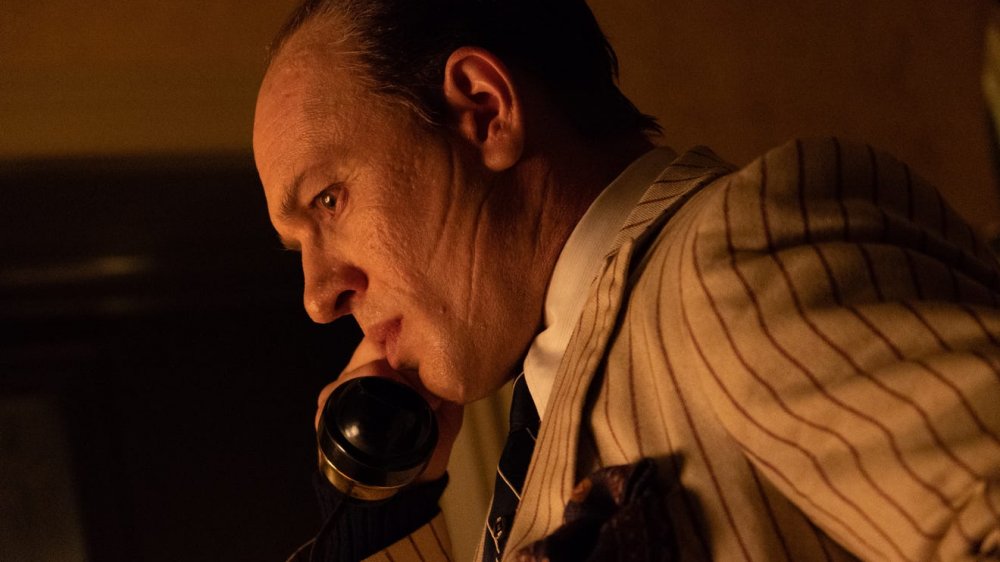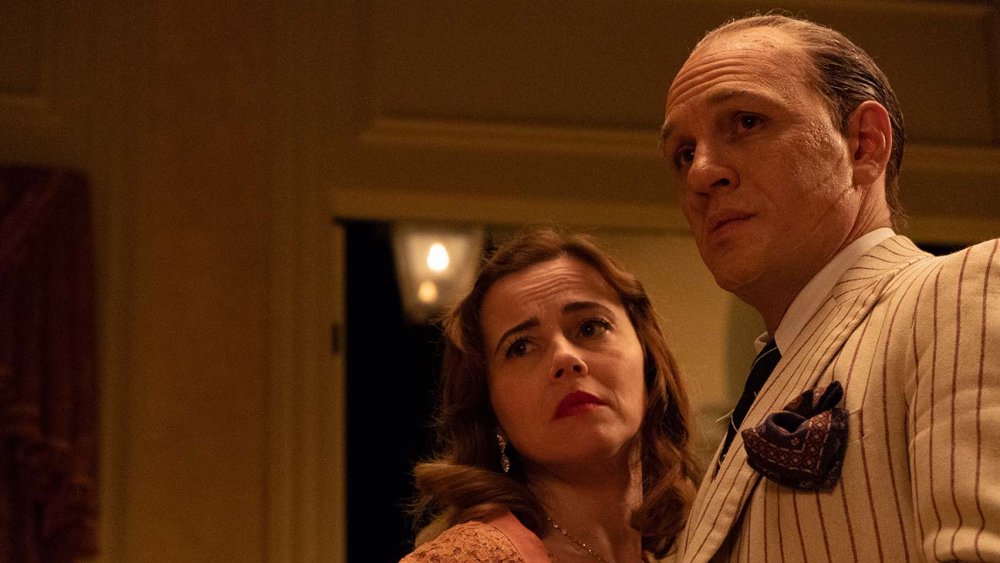How Josh Trank's Hollywood Past Led Him To Capone - Exclusive
Sometimes, there's nothing better than hitting rock bottom. Just ask Josh Trank, whose latest film, Capone, recently debuted on May 12. In 2014, the young writer and director was one of the most sought-after filmmakers in Hollywood, thanks to the success of his found-footage superhero movie Chronicle. At the time, he'd just signed a deal to direct the next big-screen adaptation of Marvel's premiere superhero team, the Fantastic Four. A film starring fan-favorite Star Wars character Boba Fett was next on his slate. By all indications, Trank's future looked very, very bright.
That's when the trouble started.
In an exclusive interview with Looper, Trank opened up about the troubles he faced in the past, and how difficult times led him to where he is today.
"The seed of [Capone] really came from a place in my life that I arrived at that I would have never arrived at had I not gone through what I did on Fantastic Four," Trank told Looper. "My experiences making that movie, the disaster that it turned into, the publicity nightmare, the public humiliation, and all of that."
Even before Fantastic Four came out, it was becoming something of a legend in Hollywood — and not for the right reasons. Reports about alleged conflicts between Trank and, well, everyone started to appear regularly online. He almost got in a fist-fight with one of his stars, the articles said. The studio reportedly had to take over and pay for massive (and costly) reshoots after Trank failed to deliver a crowd-friendly product, they claimed.
Before long, Trank was a pariah. He was forced to abandon the Boba Fett movie. The day before Fantastic Four's debut, Trank sent out a tweet more or less disowning it. The movie was released in theaters in August 2015, and it bombed. Hollywood laid the blame at Trank's feet.
As you can imagine, none of this was very healthy for Trank's psyche. "Imagine the thing that you love to do most in the world more than anything, and suddenly everybody starts writing articles about how you suck at it," he shared. "First, all you want to do after that is prove to everybody that don't suck at it, and that you can do it, and you have something to say for yourself."
Even more than that, the story of Fantastic Four's behind-the-scenes turmoil took on a near-mythological status, even though Trank disagreed with the story. "It's a myth that I didn't feel I identified with, because my memory was different than what was described. By the time I got to sending off that tweet, everything went dead silent," he told Looper. "I had already been through months of reading so many stories that I, myself, became confused about what really happened, and that distorted my own sense of reality."
Then the movie came out and flopped. In the aftermath, Trank said he was smoking two packs of cigarettes a day and wondering if he'd ever work in Hollywood again: "I started sitting outside, unemployable. Branded as toxic as one can be in our business, and being responsible for a corporation losing hundreds of millions of dollars. And I sat out there, just alone in eerie silence."
Thankfully, Trank soon found a kindred spirit. It just happened to be in the form of a gangster who'd been dead for the better part of 80 years.
Why Josh Trank's Capone is a deeply personal story
When Trank was at his lowest point, he remembered a story he'd heard about the final years of Al Capone's life, when the criminal had been released from Alcatraz and was sitting in his estate in Florida, basically waiting for his failing health and early dementia to do him in.
"All I could think about was the eerie silence that he was sitting in," he said. "What did it feel like for Al Capone to flip on the radio and hear stories about himself being Al Capone, these radio plays? What would his reaction be to hearing actors playing him on the radio?"
"My gut told me that his reaction would be fear," continued Trank — and, if anyone would know, it would be him. After all, he'd just been through something very similar.
And so, Trank began writing. He almost didn't have a choice: "Ultimately, it's the only thing I could have written after that. I didn't aspire to make a film about Al Capone. It just came from somewhere else."
Not that Trank thought much would come of it, of course. "At the time I was writing, I didn't assume I'd ever make another movie again," Trank admitted. That wasn't a problem, though. If anything, it was a blessing: "It was liberating, that feeling of not thinking I was ever going to work again. It gives you the freedom to not care. It's just a crazy experiment that came to my mind, and to go to these places that I never thought would ever get made into a movie."
As you know, Trank's script did get made into a movie, starring Tom Hardy in the lead role. Capone isn't a conventional gangster story, in that it's set well after the titular gangster's glory years. It is, as Trank noted, all about the "unraveling of his pride and his masculinity, and the kind of humility that requires." It's challenging and provocative, and it's not always easy to watch.
In other words, Capone is exactly the film that Trank wanted to make, and it's left him with a new perspective on his Fantastic Four experience — one of gratitude. "It's why I'm so grateful that I was able to experience something as bizarre as that was," Trank said, "to go through a public shaming in my own circle of fellow film-lovers."
Was it all really worth it? Ultimately, time will tell, but for now, Trank seems pretty pleased with the outcome. Given the situation, that's really all anyone can ask.
Capone is available to stream now on video-on-demand services. It is distributed by Vertical Entertainment.

